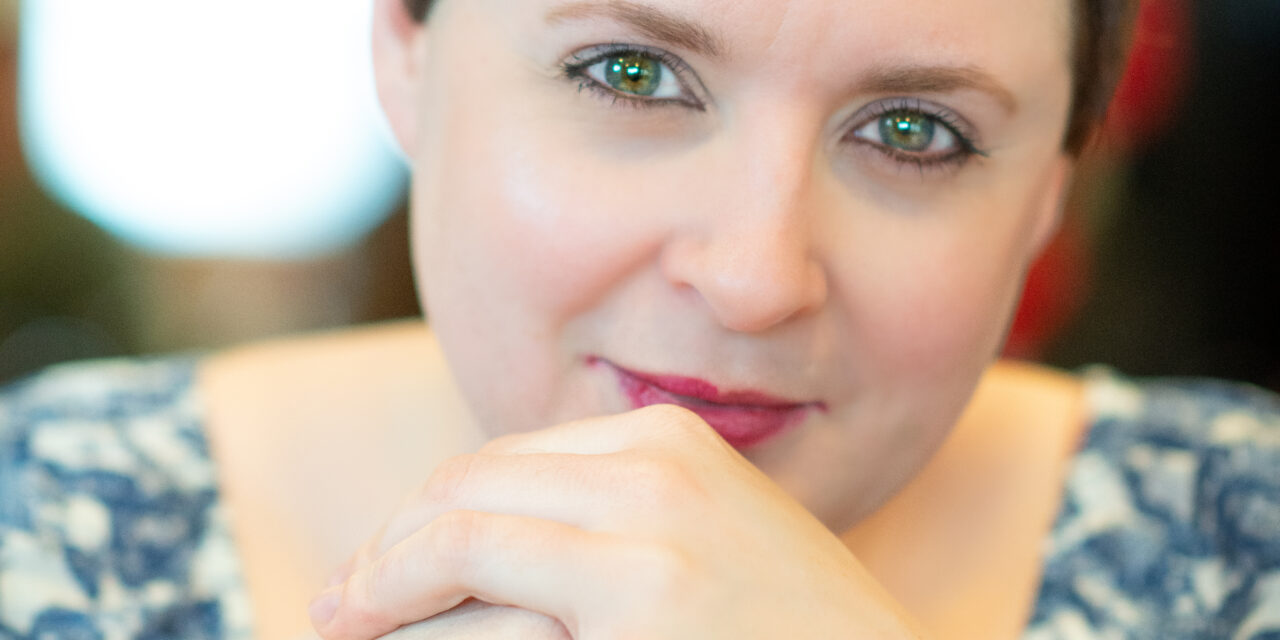By Annette Pinder
Carissa Smith was born 38 years ago in Cape May, New Jersey, moved to Western New York at a very young age, and is currently a local historian. She says, “Most of my ancestors settled in Niagara County.”
Carissa recalls having received special programming since kindergarten, but was never officially diagnosed with autism as a child. “I spent my time in school trying to live up to what was expected of me. I could read at college level in fifth grade, and was classified as gifted, but I wasn’t a neurotypical kid. Not knowing what to do, my teachers accused me of being lazy and not trying.” However, one teacher in Niagara County named Robin Blossom believed in Carissa. “I didn’t particularly like Miss Blossom. She was hard on me, but it was because she knew I was capable of so much. I remember her going to the school board and demanding that they look at my test scores, saying, ‘This child is gifted even though she is struggling.’”
Carissa said, “For many years I beat myself up, thinking, ‘If I am so smart, why can’t I do what others can?’ Now I looks at things differently, and think, there are so many people who can’t do what I can. I’ve come to realize how important it is to refrain from judging others.”
Carissa was finally diagnosed with autism when she was 21. “My grandma, who was a nurse, came across an article about the autism spectrum and thought it fit me. After reading it I laughed, thinking, ‘Well, who’s been watching my life?’” Believing that a definitive diagnosis would help put all of the pieces together to better move forward with her life, Carissa met with a psychiatrist who performed testing and confirmed her autism diagnosis. She said, “Getting the official diagnosis was a relief.”
What followed were a series of misadventures. “It is somewhat of a blur. While I blossomed socially, I also found myself in some uncomfortable situations. I was painfully shy, had just a couple of friends, and didn’t feel like I was the most interesting person in the room. Some of my experiences were good while others definitely were not. I didn’t realize that I was suffering from a confidence deficit.”
One of the most important lessons Carissa has learned through the years is how important it is to treat people equally. She says, “I’ve learned that it’s important to give the same respect to the CEO as you would the janitor. Having met many affluent and famous people, I can tell you that we all use toilet paper. I’ve also learned that we sometimes fail to realize that people we may view as being untouchable are often very accessible.” Finally, she says, “You may also think that people with a lot of pull can help you, but you may be more likely to get what you need from a janitor, so don’t be condescending.”
Carissa’s son Declan was born five years ago following a perfect pregnancy and birth. “I was in labor for just an hour and a half!” However, she began noticing some telltale signs of autism in Declan at a very young age. “He would often tripod into a downward facing dog yoga pose and wasn’t making eye contact, but I wasn’t worried.” Reflecting on her unique relationship with Declan, she says, “We are very close. I parent in a way that is unique. He understands what I need, and I understand what he needs. I also understand his frustration in not being able to express himself, as he is mostly non-verbal.”
These days, Carissa describes herself as a self-taught critical thinker, writer, and researcher, who enjoys learning about and perfecting her social media skills. She is also part of the outreach department of the Neurodiversity Network of WNY, a non-profit that provides opportunities, outreach, events, and support groups for neurodivergent individuals and their families.
Carissa, who homeschools Declan, using the DIR-Floortime model, says, “We work on what he shows me he can do. He loves expressing his creativity through art, physical activity, and music. I view him as a whole person and let him show me what he needs. I take him out in social situations, and we return home when he’s had enough. He is already talking a bit now, and I hope he will someday be more verbal. I recently purchased an AAC learning device to help with that. In the meantime, I am comfortable in allowing him to develop at his own pace.”












